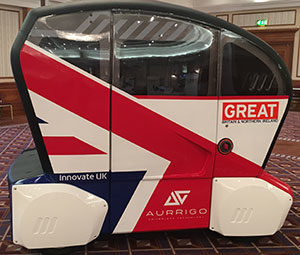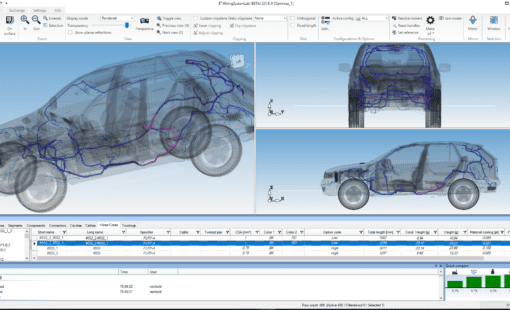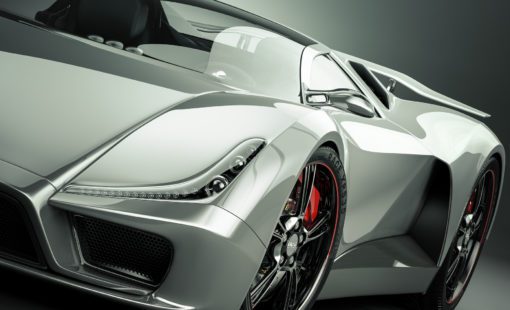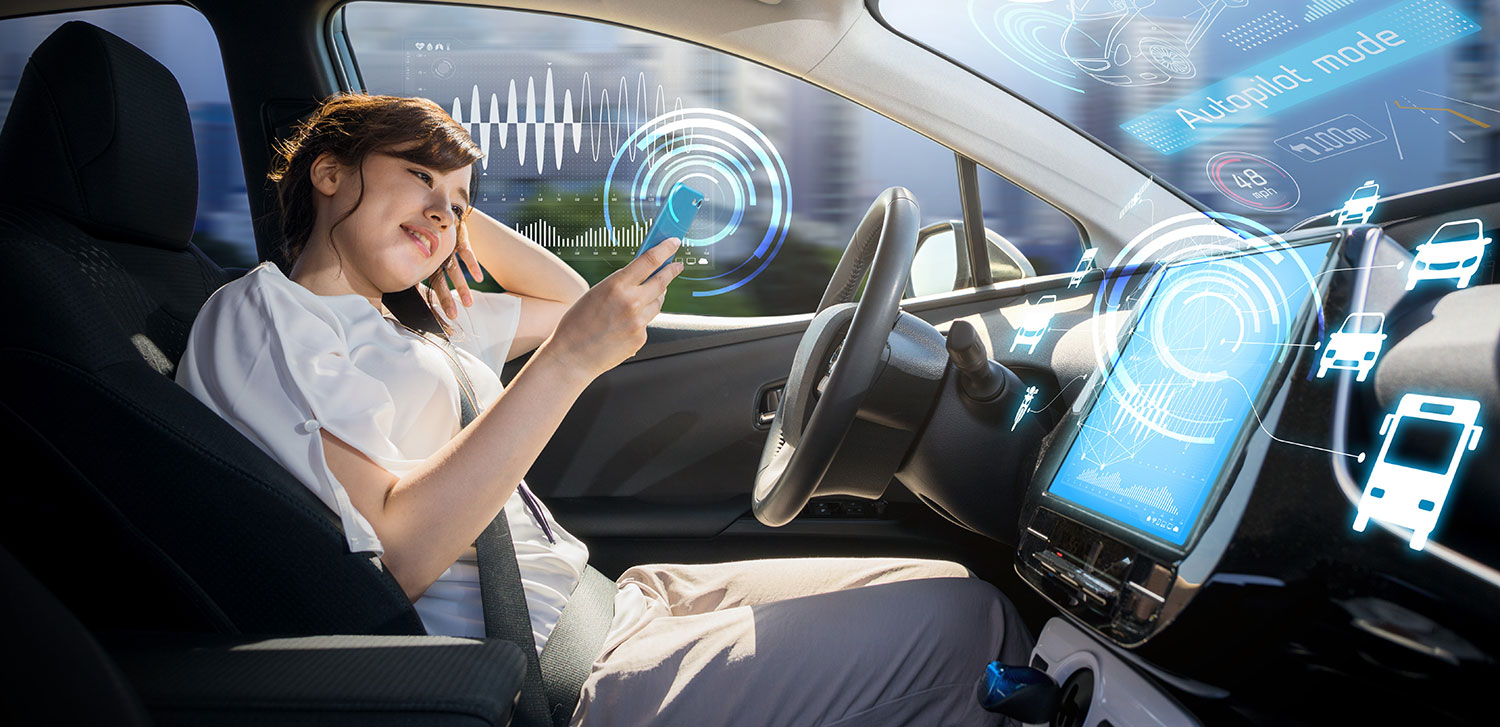
Many of the major players in the automotive industry are going full throttle towards autonomous vehicles. But when are we likely to see these vehicles upscale and become a mass consumer item? It’s a hotly debated question.
There are vast technological, legal and regulatory challenges to overcome before autonomous vehicles can ramp up to become a commercially viable concept that will change the way we transport people and goods.
A couple of weeks ago I attended the annual UK AESIN conference that brings together major players in the UK automotive industry involved in electronics, with speakers from Ford Motor Company, KPMG, Bosch, PA Consulting, Innovate UK and many more.
Autonomous vehicles have the potential to improve our lives by saving time and improving safety, being good for the environment, saving us money and improving mobility for the less able. Let’s consider some research findings and facts around parking and safety – immediate benefits that we could all enjoy.
Parking
During AESIN, The Autonomous Vehicle Roadmap session from the UK Automotive Council laid out the full picture. What is the true potential for the car of the future? They have carried out research with one element focused on parking, revealing the commercial value of cars of the future around parking.
- People in the UK are willing to pay 42 pence each time they park their car – seems realistic. After a parking incident that saw me scraping the whole side of a colleague’s brand new Mercedes in the Zuken office car park, 42p would have been a good investment for me. Back to the market potential, multiply 42p for each car owner = millions of pounds.
Safety
The WHO reported that 714 people die from road accidents in China per DAY. They are certainly in a critical situation. For the UK, it amounts to almost five per day according to The Department of Transport, which also estimated in 2015 that the value of preventable road accidents in the UK per year was £15.3 billion. If the parking doesn’t convince you, increases in safety should.
What of the social costs?
Save lives, save the earth, cut costs…this is what really matters. But what of the social costs? Some of the presenters highlighted the need to really understand what the market wants, rather than being consumed by the technical abilities and possibilities. Despite savings, changing behaviours is part of the battle that lies ahead. Quite realistically, it was suggested that incentives to make this shift will be crucial to the progress, whether that be vouchers, free parking or encouraging people to change travel times to avoid traffic issues and obtain a parking place.
Technology is not just about the car
Technology has a way to go, but we’re not just talking about the technology in the vehicle itself. It’s not all about LIDARs (sensors for self-driving cars), and the control and human machine interfaces that can self-learn onboard a vehicle; but also about having the highways enabled. Then there are the communications. As Stephen Green from Cosworth Electronics suggested, we can do a lot with 4G, but we could do so much more with 5G. He raised interesting topics such as “how good is going to be good enough, and how safe is going to be safe enough?” These questions highlight the need to accurately work out risks involved so we can balance technology with the business and human factors.
It was suggested that the autonomous cars of the future will become a productive and entertaining extension of our lives; as dramatic as the mass adoption of mobile smart phones. We may see the concept of mobility change entirely.
95% of cars are idle each day, suggesting that by 2050 50% of people won’t want to own a car.
How long?
There was much speculation as to how long it would take before your car could pick you up. Ten years was suggested as a possible figure; but it was recognised that there would be a period of limbo from the point of first adoption to mass market uptake. We mainly talk about how long will it take to make this practically possible, but this is not considering how long it will take society to build up the trust and acceptance to truly embrace the fully autonomous vehicle. To what extent can we realistically expect society to adopt this into their lives?
I’m certainly interested to see how this concept progresses in my lifetime. Will some of the sci-fi books of recent age become outdated by the time I get around to reading them in my retirement? Or will my children be the last generation to learn to drive as we know it?
Further reading
- Corporate: Automotive Engineering Solutions – Managing Complexity in Automotive Engineering
- Global: KPMG – Autonomous Vehicles Reports (Parking, Policy, Spatial Planning)
- North America: Autonomous Vehicle Implementation Predictions
- UK: Autonomous Vehicles: What are the roadblocks?
- Nordic: How long is the road to driverless vehicles?
Related Content

- Products
E3.WiringSystemLab enables the optimization of wire harnesses with an unprecedented degree of speed and accuracy. With these capabilities, it generates substantial benefits across a wide spectrum of applications in the automotive and transportation industry.

- Products
Sharing comprehensive harness design models and documents with internal or external project teams.

- Products
E3.series is a true concurrent electrical engineering environment supporting advanced requirements for electrical documentation, cabinet and wire harness design and manufacturing outputs.

- Solutions




